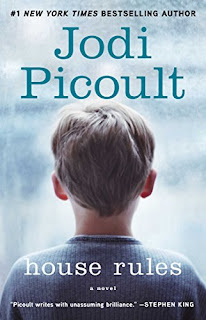Today we welcome back Justin Murphy. In both his fiction and nonfiction, Justin explores many themes in his work, including probing into the darkness of pure evil and exploring obscure figures often forgotten in entertainment. Today he talks about books that would appeal to disabled readers. Learn more about Justin and his books at his Facebook Author Page.
What Books Interest Disabled Readers?
For the last several years, there has been lots of discussion about the need for more diversity and inclusivity. Especially when it pertains to issues concerning African Americans, Asians, and those of Latino or Hispanic heritage, among other races and ethnicities as well. There are also mentions of giving women more prominent roles in fiction, along with the LGBTQ community. This way readers of such backgrounds see some reflection of themselves in stories with characters they can identify with.
Yet as a reader and author with a mild case of Cerebral Palsy caring for an autistic brother, there doesn’t seem to be much representation for the disabled in comparison. As with any of these cases and in general, there’s most likely a tug of war between literary and commercial genre fiction. With the former, there’s often a first-person story chronicling one’s ordeals and allows readers to see things through their eyes. The latter is mostly, but not always, a more accessible third-person story in the categories of crime/mystery/detective or sci-fi/fantasy/horror. Either concealing important issues in the guise of these stories or providing an escape into a more imaginative situation where one escapes such.
Two novels come to mind where a first-person story dealing with a mentally disabled and/or neurodivergent character engages in a detective story. One is Extremely Loud and Incredibly Close written by Jonathan Safran-Foer about Oskar Schell, a boy with Asperger’s who lost his father on 9/11. He sets out across New York City in search of the lock that matches a mysterious key that belonged to his father.
The other book is The Curious Incident of The Dog In The Night-Time by Mark Haddon, about Christopher John Francis Boone, another autistic boy who discovers the neighbor’s dog impaled by a garden fork. Despite being considered the prime suspect, he sets out to investigate the canine’s murder.
I’ve read both novels and feel they do a good job of staying entrenched in the world of a first-person literary novel while incorporating elements of said detective story. The same could be said for House Rules Written by Jodi Piccoult. Though in most cases, I lean toward the latter myself. In terms of the fiction, I’ve been reading a collection of stories by sci-fi/fantasy author Ray Bradbury, also read similar volumes by legendary mystery authors Dashiell Hammett, Raymond Chandler, and James M. Cain. While I can’t speak for other disabled readers and their feelings on these matters, embracing more disabled narratives and placing them in a genre context might be taking several steps forward.
For the most part, disabled narratives are either of a first-person literary or non-fiction nature. But as a reader, I want to see more risks taken with this subject matter. A broader crime/mystery/detective or sci-fi/fantasy/horror story involving a disabled character, whether he or she is a main or supporting player. Even better if such were a series detailing one’s ongoing ordeals within these settings. Yet even readers know it takes a lot of skill and craft to balance the realistic struggle of said character with a more imaginative genre scenario, and consistent on sequential basis. Though such is not impossible and could work very well.
It’s one thing to read about one’s struggles being recounted in first-person, whether it be factual or fictionalized. You’re being told this individual’s story. Yet when placed in a genre context, the author shows you their ordeal, whether it be a crime/detective/mystery story or a sci-fi/fantasy/horror tale. You’re learning a broader social message which their life or perspective tries to convey. Yet it remains up to the reader to decode the fiction from the more concealed portion of the author’s life. Odds are, this would be a worthwhile reading journey and enable these observers to think for themselves.
While these ideas may be ahead of the curve, a first person literary or non-fiction story might be too confining. A genre story or series with disabled character front and center, or with regular involvement in the stories broadens the profile and understanding of these people and their issues. It would be great to see such a thing come to pass sooner or later.
(Note from Lois and Anastasia: The Maid by Nita Prose is a cozy mystery with an autistic amateur sleuth.)





No comments:
Post a Comment